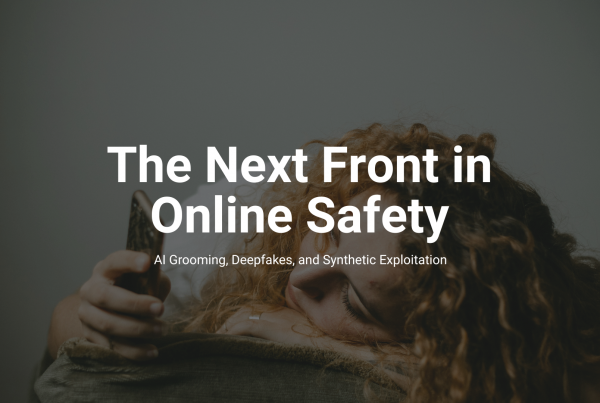Authors: Dr. Abbie Maroño
Published: July 29, 2024
Put your hand up if Google has ever diagnosed you with a life-threatening condition. Yeah, me too. I guarantee most people reading this have a hand in the air. With the internet at our disposal, we can access an unprecedented amount of information within seconds. This accessibility is undoubtedly powerful, offering endless opportunities for learning and discovery. Yet, as the old saying goes, “with great power comes great responsibility.”
With answers to almost anything at our fingertips, it’s natural to seek understanding about our experiences, especially when they involve complex emotions. This search for answers often leads us to “Doctor Google,” where self-diagnosis has become a common practice. Before I continue, I want to point out that I understand the need to search for answers and information, as well as the inaccessibility of many mental health services. However, it is crucial to recognize the dangers of self-diagnosis and the subsequent harm it can have on your mental health.
Commonly Self-Diagnosed Conditions
Some of the most frequently self-diagnosed mental health conditions include depression, anxiety disorders, and Attention Deficit Hyperactivity Disorder (ADHD). The abundance of symptom checklists available on the internet, while useful for raising awareness, can lead individuals to mistake normal life stresses and emotions for mental health disorders. For example, occasional feelings of sadness, anxiety, or distractibility are typical human experiences and not necessarily indicative of underlying mental health conditions like depression or ADHD. When these normal feelings are interpreted through the lens of disorder checklists, there’s a risk of pathologizing normal emotional responses to everyday life challenges.
This trivialization can lead to misunderstandings about the severity and depth of these conditions. Depression, for example, is not just about feeling sad; it is a complex clinical disorder that can profoundly impair a person’s ability to function and enjoy life. Anxiety disorders involve more than common nervousness; they can be debilitating and pervasive. Similarly, ADHD affects multiple domains of life beyond simple issues with focus or hyperactivity.
The Complexity Of Diagnosis
Mental health conditions are indeed intricate and multifaceted, often presenting a clinical picture that can easily be confused with other medical or psychological issues. This complexity stems from the fact that many psychiatric symptoms are not unique to one specific disorder but can be common across several different conditions.
For instance, empirical research has demonstrated that symptoms of anxiety do not only occur in anxiety disorders but can also be prominent in conditions such as thyroid disease, where excessive thyroid hormone production (hyperthyroidism) can mimic symptoms of anxiety such as nervousness, hyperactivity, and increased heart rate. Similarly, depressive symptoms can indicate more than just depression; they might be linked to vitamin D deficiency, which affects mood-regulating processes in the brain, or to hormonal imbalances such as those seen in hypothyroidism or during menopause.
Mental health professionals spend years training to distinguish the nuances between different disorders, an expertise that is critical in making an accurate diagnosis. This training involves learning to conduct thorough psychiatric assessments that consider the patient’s full medical history, current symptoms, and the psychological and social contexts of their condition.
Self-Fulfilling Prophecies
Self-diagnosing can act as a catalyst for what is known as a self-fulfilling prophecy, a psychological phenomenon where a person’s beliefs or expectations about themselves or others can lead to fulfilling those beliefs. In the context of mental health, when individuals read about symptoms of disorders such as anxiety or depression and then self-diagnose based on this information, they might start to focus intensely on their normal emotional responses, interpreting them as abnormal. Moreover, the anticipation or fear of certain symptoms can lead to increased bodily awareness, which in turn can amplify normal physiological responses (like an increased heart rate or sweating), which are then misinterpreted as more evidence of a disorder.
Indeed, studies in health psychology have shown that individuals who believe they are ill often experience worsening symptoms, regardless of their actual health status. This can, in turn, cause significant stress and anxiety, further compounding any existing psychological difficulties.
Moving Forward
If you suspect you have a mental health condition:
- Seek professional help. Always consult with a healthcare provider or a mental health professional. They can provide a thorough evaluation and, if needed, offer the appropriate treatment.
- Educate responsibly. While it’s beneficial to educate oneself about mental health, always use credible and well-respected resources for mental health information, such as those provided by major health organizations and academic journals.
But please recognize that online information is not a substitute for professional advice. Instead, use it to enhance your understanding and prepare for discussions with healthcare providers rather than to self-diagnose or self-treat.
- Engage in activities that promote well-being. Self-diagnosis can often lead to increased anxiety and stress, and believing that you have a serious mental health condition without professional confirmation can be deeply unsettling. Self-care practices, such as mindfulness, meditation, or physical exercise, can reduce stress levels and prevent the escalation of perceived symptoms.
While the internet can be a valuable tool for education and support, it’s crucial to remember its limitations in diagnosing and treating mental health. Without a professional assessment, individuals may incorrectly diagnose themselves with mental health conditions, leading to inappropriate or ineffective treatment choices. By understanding these boundaries, we can use the resources responsibly and protect our well-being effectively.





